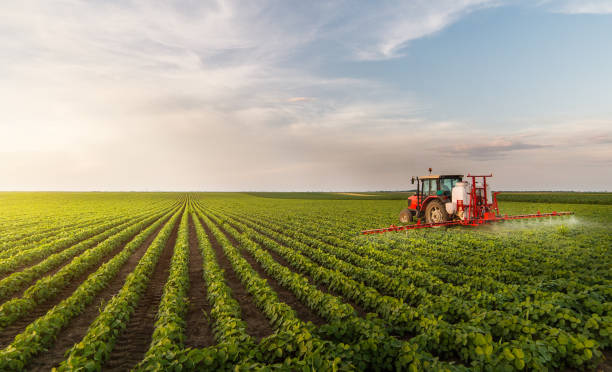The Potential of Propane in Agriculture

In the face of soaring energy costs, businesses in various sectors are diligently exploring alternative energy sources to cut down on expenses, and agriculture is no exception. The recent Husker Harvest Days event held in Grand Island, Nebraska in September showcased a promising contender in the form of propane – a clean, cost-effective, and dependable energy source that has the potential to revolutionize multiple aspects of agricultural operations.
Propane: A Versatile Energy Solution
Agriculture is an energy-intensive industry, relying on power for various operations such as heating, drying, irrigation, and transportation. Traditionally, many farms have turned to electricity and diesel fuel for their energy needs. However, the rising costs associated with these conventional energy sources have prompted a quest for more economical alternatives.
Propane has emerged as a strong candidate to meet the energy demands of modern agriculture. This versatile gas is well-suited for a range of applications in the sector, offering several key advantages:
1. Cost Efficiency: Propane is known for its cost-effectiveness, often proving more economical than electricity or diesel. Farmers can potentially reduce their energy expenses significantly by incorporating propane into their operations.
2. Environmental Benefits: Propane is a cleaner-burning fuel compared to some other fossil fuels. Its use can lead to lower greenhouse gas emissions and reduced environmental impact, aligning with sustainable agricultural practices.
3. Reliability: Propane is highly reliable, with a consistent and steady energy supply. This reliability is crucial for essential operations such as heating, which is vital to protect crops and livestock from harsh weather conditions.
Applications of Propane in Agriculture
Propane offers diverse applications in the agricultural sector, making it a versatile energy source for various tasks:
1. Crop Drying: Proper drying of crops is essential to prevent spoilage and maintain product quality. Propane-powered grain dryers are an efficient choice for this task, ensuring a timely and effective drying process.
2. Space Heating: Propane heaters are ideal for maintaining comfortable temperatures in agricultural buildings such as greenhouses and livestock enclosures. These heaters are efficient and provide consistent warmth even in extreme cold.
3. Irrigation Engines: Propane can be used to power irrigation engines, offering an eco-friendly and cost-effective solution for ensuring adequate water supply to crops.
4. Vehicle Fleet: Propane-powered vehicles, including tractors and forklifts, offer an environmentally friendly alternative for farm operations. These vehicles produce fewer emissions and can help reduce operating costs.
5. Backup Generators: Propane generators act as reliable backup power sources during outages, ensuring that essential equipment and systems continue to function, protecting the farm from potential losses.
The Future of Propane in Agriculture
As energy costs continue to rise, the agriculture industry is proactively exploring alternative energy sources that offer cost savings and environmental benefits. Propane has emerged as a promising solution, with its versatility and suitability for various agricultural applications.
The transition to propane in agriculture has the potential to drive down operational expenses, reduce environmental impact, and ensure the reliability of critical processes. The initial interest shown at events like Husker Harvest Days indicates that propane may indeed become a cornerstone of modern, sustainable farming practices.
















